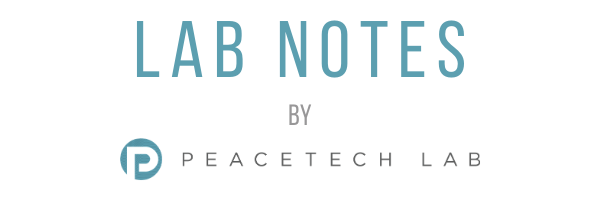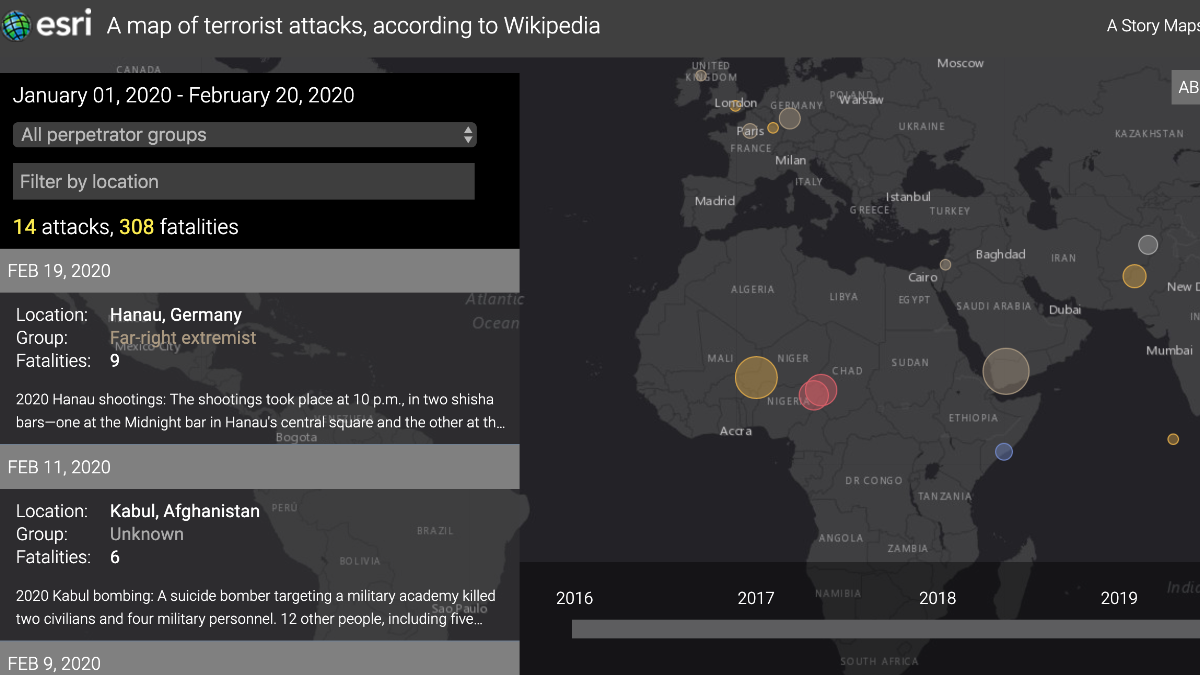English/Spanish
STING, STEPH CURRY, EVA LONGORIA, CAMILO, LAURA PAUSINI, EVALUNA, ALEJANDRO SANZ AND NATALIA JIMENEZ JOIN THE INAUGURAL INTERNATIONAL PEACE HONORS
|
|
|
It is with great excitement that we announce the amazing talent line-up for the inaugural International Peace Honors, which will recognize some of the most outstanding global leaders and change-agents of our time, who have helped tackle the biggest challenges of 2020 and inspire hope for a brighter future. This select group of global personalities, representing the best of their regions, from the United Kingdom, the United States, Spain, Italy, Venezuela, Colombia, and more, will be part of this inspiring event.
Register to watch for free on January 17th!
This year''s honorees include: Dr. Anthony Fauci, Director of the National Institute of Allergy and Infectious Diseases; Amazonian Chief Raoni, leader of the Kayap? people in Brazil; Opal Tometi, co-founder of Black Lives Matter; singer-songwriter and activist Ricky Martin; the "Father of the Internet," Vint Cerf; and Venezuelan singer-songwriter and humanitarian Ricardo Montaner, who will be named Ambassador of Peace, for his continued support of the PeaceTech Lab mission.
World-renowned musician and environmentalist, Sting, will also partake through a special musical performance and award presentation to the Amazon leader Raoni Metuktire, with whom he shares a close friendship forged through the shared purpose of protecting the Amazon and its indigenous cultures, a mission which led Sting & his wife, Trudie Styler, to create The Rainforest Foundation more than 30 years ago.
"I am very humbled to be a part of the International Peace Honors presented by PeaceTech Lab and to personally present this award to someone as close to me as Raoni, who empowers me and many others to care for our ''green lung'' and fight for the progress of indigenous cultures. Through his incredible courage, wisdom and dedication, Raoni is a shining example of how we can all adapt our lives to work more deliberately for peace," said Sting.
Basketball icon Stephen Curry of the Golden State Warriors also joins the International Peace Honors to present the medal of honor to Dr. Anthony Fauci. After hosting Dr. Fauci for two one-on-one conversations during the pandemic to his nearly 46 million social media followers, Curry continues his commitment to empower the public through awareness and education. As one of the most influential stars both on and off the court, Curry holds six NBA All-Star selections, three NBA Championships, and is also an emerging figure in Silicon Valley, investing in innovative consumer and enterprise tech companies. In 2019, Stephen and his wife, Ayesha Curry, launched Eat. Learn. Play., whose mission is to unlock the potential of every child by ending childhood hunger, ensuring universal access to education, and empowering all children to play and be active.
Industry staple Eva Longoria will make a special appearance during the International Peace Honors to present an award to her friend Ricky Martin. Since her starring role in the hit ABC series Desperate Housewives, Longoria, an award-winning actress, director, producer, entrepreneur, philanthropist, and activist, has become a leader in the fight for more diverse and equitable representation both on and behind the camera. Recently named by People Magazine as one of the Women Changing the World, Longoria is a dedicated social activist who consistently lends her voice to issues she is passionate about, ranging from immigration to STEM education. Committed to empowering Latinas everywhere, Longoria established the Eva Longoria Foundation (ELF) in 2012 to help Latinas build better futures for themselves and their families through educational programs, scholarships, mentorship, and entrepreneurship.
Also gracing the awards ceremony is Laura Pausini, who will perform "Io Si," the theme song for The Life Ahead, available on Netflix, with music by Diane Warren (eleven-time Oscar? nominee and winner of the GRAMMY?, Emmy? and Golden Globe Awards?) and lyrics by Diane Warren, Laura Pausini and Niccolo Agliardi. The film, starring Sof?a Loren, has marked a milestone in the career of the Italian diva, with a powerful message of acceptance, tolerance, and diversity, which is so necessary at this time.
"It is a profound honor to join PeaceTech Lab's International Peace Honors, which represents the values and ideals that have guided my life and career. It is also deeply rewarding to be able to interpret this song alongside one of my country''s -and the world''s- greatest icons, Sofia Loren, with a precious message that invites us to unite and accompany each other in our differences as we move forward together," says Pausini.
The event will also include one of the most influential young couples of the moment, singers/composers Camilo and Evaluna, who together have more than 30 million followers on their social networks. Latin GRAMMY? Award Winner Camilo recently received six GRAMMY? nominations for his debut album "Por Primera Vez," which has generated hit after hit including "Favorite," "Tutu," "Vida de Rico," and his wife, Evaluna, is a multi-talented actress star of three Nickelodeon TV-series, singer, and director whose career is on the rise.
One of the most influential Latin music icons and the Spanish artist with the highest number of GRAMMY? awards in history, Alejandro Sanz, will also perform during the event. With more than 25 million records sold, Sanz has more than 31 million followers on his social networks, and his influence builds bridges between Spain, America, and the rest of the world.
"It is heartwarming to be part of this inspiring event where the notion of unity and togetherness prevails. I am a faithful defender of peace and always trust that my voice, my music, and my whole being can be an example to overcome challenges and counteract conflicts. I want to be able to transmit with all the means at my disposal, the love, and unity that we need so much," said Sanz.
This inspiring global experience will be hosted by one of the most relevant figures in Latin music, singer and songwriter Natalia Jim?nez. Jim?nez is an internationally renowned GRAMMY and Latin GRAMMY-winning artist, who has sold over 3 million albums worldwide and recorded duets with Latin music's biggest stars, including Marc Anthony, Daddy Yankee, and Ricky Martin to name a few. Her TV personality has also granted her important roles inside hit shows like La Voz Mexico, La Voz Kids USA, Latin Billboards, among others. Jim?nez is a committed partner of St. Jude Children''s Research Hospital, as well as a supporter of multiple humanitarian causes, including providing emergency relief during natural disasters and promoting social justice and equality.
The International Peace Honors will broadcast digitally on Sunday, January 17 at 8:00 pm EST. To register to watch the event for free, visit: internationalpeacehonors.org
The International Peace Honors is made possible with the generosity of its sponsors and donors: BNY Mellon, MITRE, Microsoft, Channels TV, Suh Family Foundation, Liberty Mutual Insurance, Mercator XXI, and Alliance for Peacebuilding.
|
|
|
Follow the IPH on Facebook, Twitter, Instagram, and LinkedIn for more exciting news.
|
|
Become an International Peace Honors Supporter!
|
|
STING, STEPH CURRY, EVA LONGORIA, CAMILO, LAURA PAUSINI, EVALUNA, ALEJANDRO SANZ Y NATALIA JIMENEZ SE UNEN A LA CEREMONIA INAUGURAL DE LOS PREMIOS INTERNACIONALES DE LA PAZ
|
|
|
Con gran emoci?n nos complace anunciar al incre?ble grupo de personalidades para la inauguraci?n de los Premios Internacionales de la Paz, que reconocer? a algunos de los l?deres mundiales y agentes de cambio m?s destacados de nuestro tiempo, que han ayudado a enfrentar los mayores desaf?os del 2020 e inspirar esperanza para un futuro mejor. Este selecto grupo de personalidades internacionales, que representan lo mejor de sus regiones, del Reino Unido, Estados Unidos, Espa?a, Italia, Venezuela, Colombia y m?s, ser? parte de este inspirador evento.
Reg?strate para ver los Premios gratuitamente el 17 de enero!
Entre los homenajeados de los Premios Internacionales de la Paz se encuentran la cofundadora de Black Lives Matter, Opal Tometi; el director del Instituto Nacional de Alergias y Enfermedades Infecciosas, Dr. Anthony Fauci; el l?der amaz?nico Raoni Metuktire, quien lidera el pueblo Kayap? en Brasil; el 'Padre de Internet', Vint Cerf; el cantante y activista Ricky Martin, y el cantautor venezolano Ricardo Montaner, quien ser? nombrado Embajador de la Paz, por su continuo apoyo a la misi?n de PeaceTech Lab.
El reconocido cantante y ambientalista Sting marcar? su presencia a trav?s de una emotiva presentaci?n musical y presentando un premio para el l?der amaz?nico Raoni Metuktire, con quien comparte una estrecha amistad forjada bajo el prop?sito compartido de proteger y rescatar la Amazon?a y sus culturas ind?genas, una misi?n que llev? a Sting y a su esposa, Trudie Styler, a crear The Rainforest Foundation hace m?s de 30 a?os.
"Estoy muy orgulloso de ser parte de los Premios Internacionales de la Paz presentados por PeaceTech Lab y personalmente darle este premio a alguien tan cercano a m? como lo es el L?der Raoni, quien me empodera a m? y a muchos otros para cuidar nuestro ''pulm?n verde'' y luchar por el progreso de las culturas ind?genas. A trav?s de su incre?ble coraje, sabidur?a y dedicaci?n, Raoni es un ejemplo brillante de c?mo todos podemos adaptar nuestras vidas para trabajar m?s deliberadamente por la paz," dijo Sting.
El ?cono del baloncesto Stephen Curry de los Golden State Warriors tambi?n se une a los Premios Internacionales de la Paz para entregar la medalla de honor al Dr. Anthony Fauci. Despu?s de conducir dos conversaciones muy especiales con Dr. Fauci durante la pandemia para una audiencia de casi 46 millones de seguidores, Curry contin?a con su compromiso de empoderar al p?blico a trav?s de la concientizaci?n y la educaci?n. Como una de las estrellas m?s influyentes tanto dentro como fuera de la cancha, Curry tiene seis selecciones de estrellas de la NBA, tres campeonatos de la NBA y tambi?n es una figura emergente en Silicon Valley, que invierte en empresas innovadoras de tecnolog?a empresarial y de consumo. En 2019, Stephen y su esposa, Ayesha Curry, lanzaron la Eat. Learn. Play., cuya misi?n es liberar el potencial de cada ni?o al poner fin al hambre infantil, garantizar el acceso universal a la educaci?n y capacitar a todos los ni?os para que jueguen y sean activos.
La estrella de la industria Eva Longoria har? una aparici?n especial durante los Premios Internacionales de la Paz para entregar un premio a su amigo Ricky Martin. Desde su papel protag?nico en la exitosa serie de ABC Desperate Housewives, Longoria, una premiada actriz, directora, productora, emprendedora, fil?ntropa y activista, se ha convertido en l?der en la lucha por una representaci?n m?s diversa y equitativa tanto dentro como detr?s de la c?mara. Recientemente nombrada por la revista People como una de las mujeres que est?n cambiando el mundo, Longoria es una activista social dedicada que constantemente presta su voz a los temas que le apasionan, que van desde la inmigraci?n hasta la educaci?n STEM. Comprometida con empoderar a las latinas en todas partes, Longoria estableci? la Fundaci?n Eva Longoria (ELF) en 2012 para ayudar a las latinas a construir un mejor futuro para ellas y sus familias a trav?s de programas educativos, becas, mentores y esp?ritu empresarial.
La galardonada artista, compositora y productora italiana, Laura Pausini, ganadora del premio GRAMMY? y m?ltiples reconocimientos, tambi?n se une al selecto grupo de grandes nombres que ser?n parte de la ceremonia. Pausini interpretar? en vivo "Io Si", tema principal de la pel?cula, disponible en Netflix, The Life Ahead, (con m?sica de Diane Warren, once veces nominada al Oscar? y ganadora de los premios GRAMMY?, Emmy? y Golden Globe?, y letra de Diane Warren, Laura Pausini y Niccolo Agliardi). La pel?cula, protagonizada por Sof?a Loren, ha marcado un hito en la carrera de la admirada artista italiana, con un poderoso mensaje de aceptaci?n, tolerancia y diversidad, tan necesarios en estos momentos.
"Es m?s que un honor poder estar presente en un evento que destaca valores que son los que han marcado la direcci?n de mi vida y mi carrera. Y poder, adem?s, interpretar la canci?n de la mano de un icono de mi pa?s y el mundo entero, como lo es Sofia Loren, con un mensaje precioso que nos invita a unirnos y acompa?arnos en nuestras diferencias para avanzar juntos", se?ala Pausini.
Al evento tambi?n se unen una de las parejas j?venes m?s influyentes del momento, los cantantes y compositores Camilo y Evaluna, quienes conjuntamente suman m?s de 30 millones de seguidores en sus redes sociales. Camilo, ganador de un premio Grammy Latino, recibi? recientemente seis nominaciones al GRAMMY? por su disco debut "Por Primera Vez", el cual ha generado ?xito tras ?xito incluyendo "Favorito", "Tutu", "Vida de rico", y su media naranja, Evaluna, con tres series protag?nicas en Nicklelodeon es una gran actriz, cantante y directora cuya carrera est? en ascenso pleno.
El artista espa?ol con mayor n?mero de premios GRAMMY? en la historia, Alejandro Sanz, se une al selecto evento. Con m?s de 25 millones de discos vendidos a lo largo de su carrera, Alejandro Sanz cuenta con mas de 31 millones de seguidores en sus redes sociales y su influencia global tiende puentes entre Espa?a y Am?rica.
"Es gratificante poder formar parte de este inspirador evento donde premian los valores humanos y la unidad de la que formamos parte todos. Soy un fiel defensor de la paz y conf?o siempre en que mi voz, mi m?sica y todo mi ser puedan ser ejemplo para sobrellevar retos y contrarrestar conflictos. Deseo poder transmitir con todos los medios a mi alcance, el amor y la unidad que tanto necesitamos", expres? Sanz.
Y, para cerrar con broche de oro, la inspiradora ceremonia ser? conducida por una de las figuras femeninas m?s importantes de la m?sica en espa?ol, la cantante y compositora Natalia Jim?nez. Jim?nez es una ganadora del premio GRAMMY y Lat?n GRAMMY reconocida internacionalmente, quien ha vendido m?s de 3 millones de ?lbumes en todo el mundo y ha grabado duetos con las estrellas m?s importantes de la m?sica latina, incluyendo a Marc Anthony, Daddy Yankee, Ricky Martin, entre otros. Natalia tambi?n ha fusionado su personalidad en importantes papeles dentro de la television siendo parte de exitosos programas como La Voz M?xico, La Voz Kids USA y Operaci?n Triunfo en Espa?a. Jim?nez es una socia comprometida de St. Jude Children''s Research Hospital, as? como tambi?n apoya m?ltiples causas humanitarias para proveer ayuda de emergencia en casos de desastres naturales y promover la justicia social e igualdad.
Los Premios Internacionales de la Paz se transmitir?n digitalmente, el pr?ximo domingo, 17 de enero a las 8:00 pm EST. Para ver el evento completamente gratis, favor de registrarse aqu?: premiosinternacionalesdelapaz.org.
Los Premios Internacionales de la Paz se hacen posible con la generosidad de sus patrocinadores y donantes: BNY Mellon, MITRE, Microsoft, Channels TV, Suh Family Foundation, Liberty Mutual Insurance, Mercator XXI, y Alliance for Peacebuilding.
|
|
|
Sigue los Premios en Facebook, Twitter, Instagram, y LinkedIn para m?s noticias emocionantes.
|
|
?Apoya a los Premios Internacionales de la Paz!
|
|
|
|
|
|












 Arts and Entertainment
Arts and Entertainment Business and Industry
Business and Industry Computer and Electronics
Computer and Electronics Games
Games Health
Health Internet and Telecom
Internet and Telecom Shopping
Shopping Sports
Sports Travel
Travel More
More